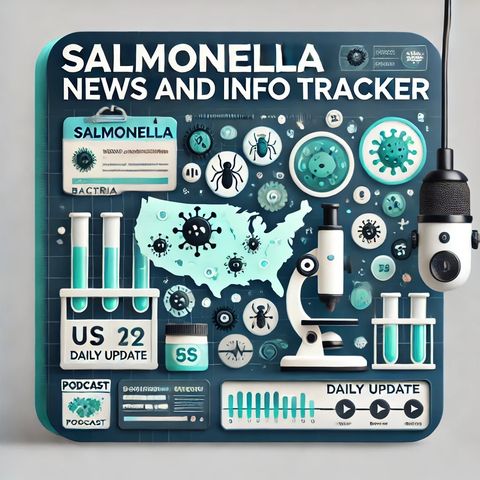Supermarkets Initiate Recalls Amid Salmonella Fears: Safeguarding Consumers from Foodborne Illness

Download and listen anywhere
Download your favorite episodes and enjoy them, wherever you are! Sign up or log in now to access offline listening.
Supermarkets Initiate Recalls Amid Salmonella Fears: Safeguarding Consumers from Foodborne Illness
This is an automatically generated transcript. Please note that complete accuracy is not guaranteed.
Description
In recent food safety news, prominent UK supermarkets Co-op and Waitrose have initiated recalls of several products due to potential Salmonella contamination. These recalls form part of a broader trend...
show moreSalmonella is a significant cause of foodborne illness worldwide, responsible for symptoms ranging from mild gastrointestinal discomfort to severe dehydration and systemic infection. In vulnerable populations, such as young children, the elderly, and those with compromised immune systems, Salmonella infections can be particularly dangerous. Prompt and effective response to potential contamination is essential to prevent outbreaks.
The actions by Co-op and Waitrose follow stringent guidelines and reflect the heightened vigilance within the industry against foodborne pathogens. Both chains have emphasized that customer safety is their highest priority. They have issued detailed instructions through their respective websites and customer service channels to ensure that affected products are swiftly identified and managed.
For context, recalls due to undeclared allergens and contamination are a common feature in the landscape of food safety. Undeclared nuts and fish, for instance, pose serious risks for allergy sufferers and those with specific dietary restrictions. The recalls for potential Salmonella contamination are part of a more extensive recall spectrum reported by authorities and monitored by consumer watchdogs.
This latest development accentuates the crucial role of transparency and rapid communication between retailers and their customers. Modern technology and media play an integral part in disseminating recall information quickly, thereby minimizing the health risks associated with contaminated food products.
The current recall events also underscore the importance of good manufacturing practices and regular testing to detect potential contaminants before products reach consumers. Retailers are continually improving their food safety protocols, partly driven by regulatory mandates and partly by the realization that consumer trust hinges on their ability to maintain high safety standards.
As recalls become more frequent and better publicized, consumers are growing more informed and proactive about food safety. This trend is beneficial, as it encourages more robust compliance among food manufacturers and retailers, ultimately contributing to a safer food supply chain.
In summary, the recall actions taken by Co-op and Waitrose this week reflect broader efforts across the food industry to mitigate risks associated with Salmonella contamination. These measures are essential to protect public health and retain consumer confidence. Enhanced safety protocols, rigorous testing, and clear communication remain pivotal in managing and preventing foodborne illness outbreaks.
Information
| Author | QP-4 |
| Organization | William Corbin |
| Website | - |
| Tags |
Copyright 2024 - Spreaker Inc. an iHeartMedia Company

Comments